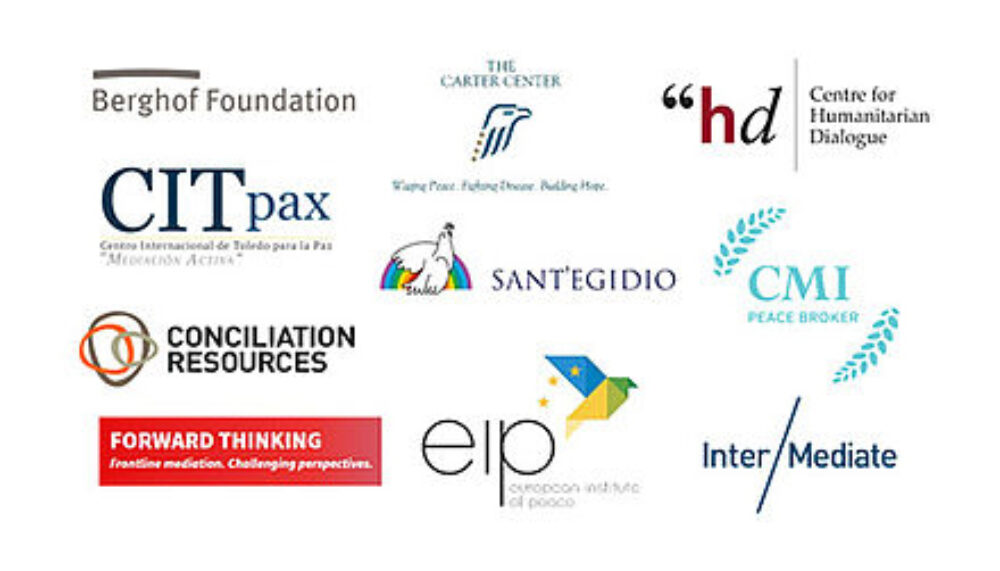PRESS RELEASE | 16 Apr 2020
Peace support organisations adopt collaborative approach

Leading mediation and peace support organisations have agreed on a range of measures to ensure their work is complementary and mutually reinforcing.
Leading mediation and peace support organisations have agreed on a range of measures to ensure their work is complementary and mutually reinforcing.
Below is the full content of the statement of intent agreed by the Berghof Foundation, the Carter Center, the Centre for Humanitarian Dialogue, CITpax, CMI, Conciliation Resources, European Institute of Peace, Forward Thinking, Inter Mediate, and Sant'egidio.
Statement of intent of complementarity for independent mediation support organizations
Objective
As representatives of organizations mediating conflicts or advising parties in a negotiation setting, we agree on the following standards and action points in order that our collective efforts should make the maximum possible contribution to peace and stability wherever we work. We are aware that conflict resolution is a complex endeavour. Multiple engagements in the same conflict are often beneficial, and even essential. But without appropriate communication among peace practitioners, they can also confuse and diminish our common effort. Adherence to this statement of intent will help to maximize our combined impact and minimize risks of duplication or contradiction.
This Statement is a living document which we will revisit annually and update, as needed. We encourage other actors to adopt this Statement and signal commitment to the working practices and action points below.
Working Practices
In our relationship with each other, we will:
- Communicate during planning of peace initiatives to map and coordinate respective activities;
- Share information and analysis, while respecting confidentiality;
- Actively explore opportunities to work collaboratively and support each other’s conflict resolution efforts;
- Contribute jointly to the improvement of mediation practice by:
- sharing our positive and negative experiences;
- strengthening mediators’ networks;
- influencing development of relevant policy, including through joint advocacy.
Action Points
- We will continue meeting once a year at the level of Executive Director/Senior Manager to:
- Discuss developments within our organizations, including where we work, on what and based on what vision of change;
- Share concerns, lessons, insights derived from our work;
- Review and, if needed, update these working practices with a view to developing standards.
- When our organizations engage in the same peace process, in order to ensure our endeavours are mutually reinforcing we (Executive Directors) will:
- Contact each other bilaterally to:
- Discuss our analysis of and engagement in a given context;
- Clarify what each organization is working on for a perspective on the risks and potential benefits of engaging in the same space;
- Resolve misunderstandings that may arise;
- Explore possibilities of coordination, division of labour within the same setting and possible sequencing of our respective engagements;
- Seek the support of a third person/organization, should both parties agree, to resolve misunderstandings.
- Encourage our staff to also share analysis, discuss comparative advantages of each organization, and avoid duplication;
- When opportunities arise, we will invite each other to observe our operational activities and internal reflections;
- Encourage coherence and effective division of labour among donors in the field.
- Contact each other bilaterally to:
Media contact
You can reach the press team at:
+49 (0) 177 7052758
email hidden; JavaScript is required


